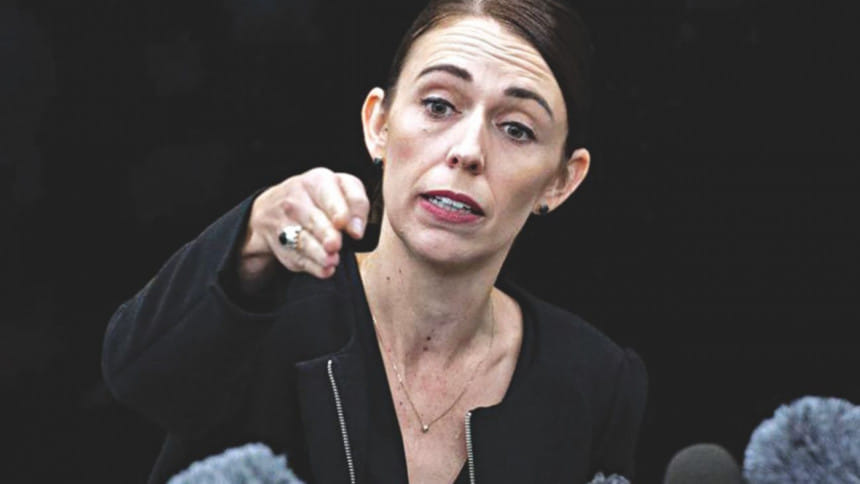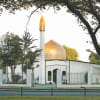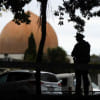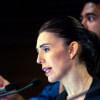Thanks to Ardern, New Zealand today soothes the soul

Those who have rushed to psychoanalyse 28-year-old Australian, Brenton Tarrant, for the outrage in Christchurch mosques killing 50 people, are concealing the reality, possibly without their knowing it. This line of inquiry will not explain why Christchurch or Pulwama, Utrecht and now Birmingham happened.
When Phoolan Devi, the low-caste "mallah" (boatwoman), shot dead 22 high-caste Rajputs in the village of Behmai, 80 km from Kanpur in UP on February 4, 1981, she had taken the law into her own hands. This she had done because no law enforcement agency had come to her rescue when the very same men had locked her in a room and taken turns, repeatedly, to rape her over weeks. It was gross injustice she was fighting.
During the British mandate over Palestine, Jews formed Haganah, a secret, militant organisation—guns, hand grenades et al—to protect Jewish enclaves against "Arab gangs". Why was Haganah formed? Perceived injustice. In 1939, the British produced a White Paper restricting Jewish immigration. That is when the French-built ocean liner Patria, carrying nearly 2,000 Jews to Mauritius, was sunk off Haifa killing 267 people. Later, the same group—its offshoot Irgun—bombed the King David hotel in Jerusalem, killing 28 British soldiers. Both were ghoulish acts. But would Menachem Begin, member of Haganah and later Prime Minister, have seen it this way? According to their lights, Begin and, indeed, the entire Haganah outfit were fighting British injustice.
April 13 will be the centenary of the Jallianwala Bagh massacre in Amritsar. Colonel Reginald Dyer's character or a psychoanalysis will not shed light on whether or not police action was required on a scale that killed 1,000 people. The official British figure was 379 dead. Lt. Governor of Punjab, Gen. Michael O'Dwyer justified military action on administrative grounds. This is not the way Udham Singh the nationalist saw the massacre. He turned up in the UK and shot dead Gen. O'Dwyer on March 13, 1940 at the Caxton hall, now Royal Society for Royal Affairs. It was injustice he was fighting.
In his trial, Udham Singh said: "He wanted to crush the spirit of my people, so I crushed him. For full 21 years, I have been trying to wreak vengeance. I am happy that I have done the job." There is a series of such incidents which the state would have considered acts of terror. The perpetrators have been celebrated as martyrs and patriots including the great Bhagat Singh. They were fighting an unequal battle against injustice.
During a visit to Libya, Hillary Clinton as Secretary of State appeared on global TV making a "V" sign and blurting out the unforgettable line, "I came, I saw and he died." Even as she spoke this masterpiece of callousness, appeared on the screen images of Qaddafi screaming, being sodomised by a knife. Would this not have made the Libyan blood boil with sheer helplessness?
And not just Libya. Imagine the relentless destruction of Afghanistan, Iraq, Syria, all the 9/11 wars. Millions are killed. Begins the migrant trek to Europe which all but shuts its doors, forgetting that just the other day it was complicit in destroying their homes, their cities and villages.
The samples I have touched upon are of people experiencing injustice, suffocated and, presumably, waiting for their time. But the perpetrator of the Christchurch outrage is in a different category. He experienced no injustice. His phobia, like that of his fellow murderer from Norway, Anders Breivik, derives from the contemporary curse called the global media. They have been fed on the post-Soviet Union, post-9/11 wars as mentioned above. But they have seen these stories covered by a media which has mysteriously cast victims as villains. Jean Raspail's novel Camp of the Saints shows destruction of Western civilisation through third-world immigration. This becomes Tarrant's nightmare.
I was witness to the launch of the global media in Baghdad in January-February 1991. The Operation Desert Storm was covered live by Peter Arnett of the CNN. Not to comprehend the significance of this event is to miss out on the nature of International Affairs in the post-Soviet period. Remember, the Berlin wall fell in 1989; Soviet Union came down like melting ice cream in 1991. This was the first time in human history that coverage of a war was brought live into our drawing rooms.
The coverage divided the world into two hostile camps—the triumphant West and the defeated, demoralised Muslim nations. This critical division got amplified exponentially as the two Intefadas erupted, followed by the four-year-long Bosnia war bringing, once again, the brutalities heaped upon Bosnian Muslims, day after day. The climax came with the 9/11 wars and the unbelievable fireworks over Afghanistan.
With each war and accompanying global coverage, the West-Muslim divide widened. It was this atmosphere so thoroughly saturated with Islamophobia that shaped the minds of Breivik and Brenton Tarrant. Leaders like George W Bush, Tony Blair and Australia's John Howard cynically used this "othering" of the world's Muslims as a strategy for western cohesion. Fear of terrorism, real or simulated, resulted in loss of status of foreign offices. Intelligence agencies acquired saliency.
In India, the sheer hypocrisy of the elite shrouded and thereby aggravated a corresponding division between non-Muslims and Muslims stoked by our anchors. The new liberal economic policies of the 90s demanded a multiplication of TV channels. This coincided with accelerated communalisation after the fall of the Babari Masjid in 1992. Capitalism and communalism joined hands and set the national agenda conducive to the consolidation of Hindu nationalism. In the ranks of these nationalists, it would not be impossible to find the willingness to give a sympathetic quarter to Brenton Tarrant. But to Prime Minister Jacinda Ardern goes the credit for having taken the fierce current head-on. Conduct an opinion poll anywhere: she is the compassionate leader the world is looking for. Donald Trump minimised the outrage and all but approved of Tarrant. Thanks to Ardern, New Zealand today feels like a land for pilgrimage to soothe the soul.
Saeed Naqvi is a senior Indian journalist, television commentator and interviewer.










Comments